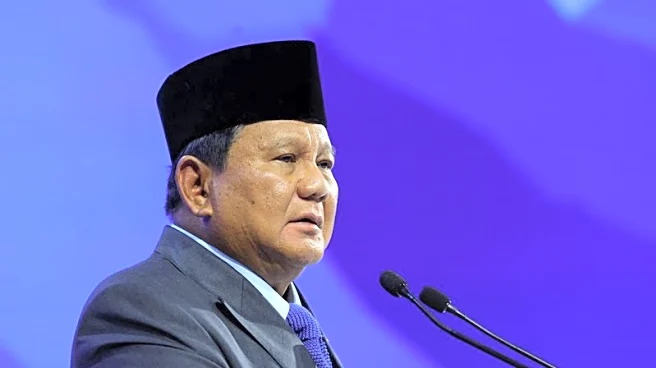What's Happening?
The Taliban and Pakistan have reached an agreement for an immediate ceasefire following a period of intense and deadly clashes along their shared border. The ceasefire was mediated by Qatar and Turkey,
aiming to establish mechanisms for lasting peace and stability. The conflict, which saw both sides claiming heavy casualties, marks the most severe fighting since the Taliban regained power in Afghanistan in 2021. Pakistan has accused the Taliban of harboring armed groups that conduct attacks on its soil, a claim the Taliban denies. The recent escalation included Afghan troops firing on Pakistani border posts and Pakistan responding with mortar fire and drone strikes, resulting in significant civilian casualties.
Why It's Important?
This ceasefire is crucial for regional stability, as continued hostilities could exacerbate tensions and lead to further violence. The agreement is seen as a positive step towards reducing terrorism and violence in the region, which has been a longstanding issue affecting both countries. For Pakistan, the ceasefire could mean a reduction in cross-border attacks, potentially improving security and stability within its borders. For Afghanistan, it represents an opportunity to focus on internal governance and rebuilding efforts without the distraction of external conflicts. The involvement of Qatar and Turkey as mediators highlights the international community's interest in stabilizing the region.
What's Next?
Both parties are expected to meet in Istanbul for further discussions to solidify the ceasefire and address underlying issues. The success of these talks could lead to more comprehensive peace agreements and cooperation between the two nations. However, the situation remains fragile, and any breach of the ceasefire could quickly reignite hostilities. The international community will likely continue to monitor the situation closely, offering support to ensure the ceasefire holds and progresses towards a lasting peace.









